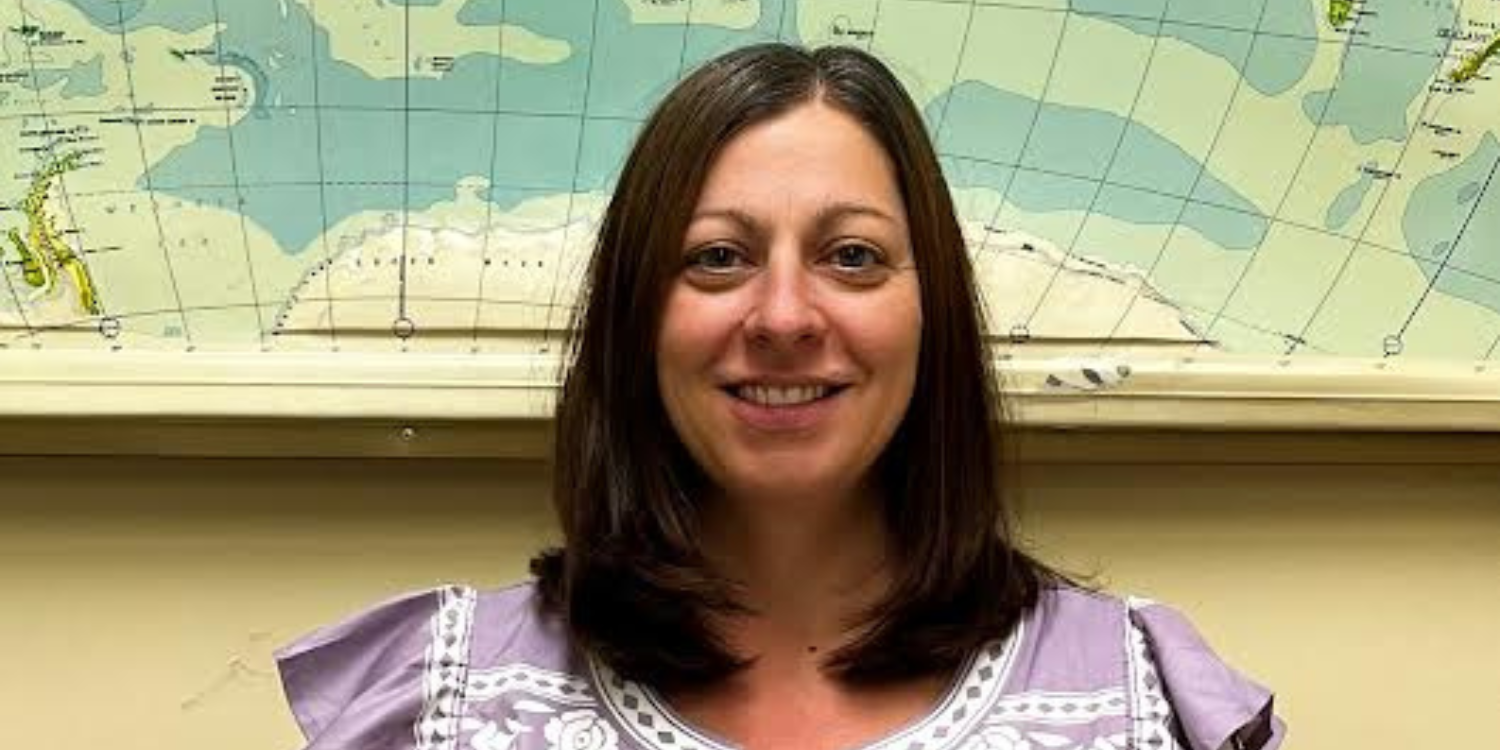Fredericton High School teacher Laura McCarron is passionate about Social Studies, and has been since her first day as a teacher 22 years ago.
“For me Social Studies is everything, because it is citizenship,” she says. “We live in society, and to do that effectively we always need to work with each other.”
McCarron demonstrates her dedication to the subject in many ways, including her teaching approach, leadership and commitment to collaboration.
She believes the best outcomes for students come through a process of teamwork. “If I work with a community of teachers, we can produce phenomenal resources for the students,” she says. “I’ve always been completely sold on the team approach.”
Fittingly, McCarron belongs to a variety of educator networks through which she shares resources of interest, including those from CIVIX, which she appreciates for their ease and adaptability.
When CIVIX released the CTRL-F digital media literacy program as a pilot in 2020, she and two of her colleagues were among the first teachers to test the new online verification skills resources. “I was able to see the benefit of it immediately,” she says.
McCarron sees technology as both a challenge and opportunity when it comes to democracy education. On the one hand, youth are becoming addicted to their devices, which needs to be addressed, but those same devices also carry the potential to promote informed citizenship by giving students access to information they wouldn’t otherwise have.
“The kind of conversations that I’m having with my students shows me that they have a level of understanding, because they have immediate access,” she says. “If they have the skills to be able to use that technology appropriately, the sky’s the limit for the level of discussions that we have in class.”
CTRL-F, which helps students locate credible sources online, is a key piece of the puzzle. Because the digital media literacy material connects so well to the English 9 and 10 curriculum in New Brunswick, McCarron and her colleagues got the English teachers at the school using them.
And when New Brunswick decided to create a new Civics 10 course focussing on digital themes, McCarron, who is the New Brunswick representative for the Social Studies Educators Network of Canada, participated in a consultation with the Department of Education and supported the inclusion of CTRL-F in the curriculum.
“I think it’s wonderful how far we’ve come,” she says, “from talking about CIVIX resources from teacher to teacher, to it being built into our curriculum — now they can go directly to the source.”
McCarron has worked with CIVIX since a colleague introduced her to Student Vote in 2004. Soon after, she returned to New Brunswick to teach and has organized the program for almost every election since 2006.
Student Vote makes all the difference and it is about so much more than just voting. It’s also about being informed about issues and having discourse on those issues.
With 2,200 students, Fredericton High School is the largest in Atlantic Canada, and the whole school participates, learning during their homeroom periods: “On one of the days they would be introduced to who the candidates are, for example, and on another day they would complete the Vote Compass. And on another day, they would listen to the debate.”
Meanwhile, her classes help to create election materials to share with the school and learn to run the election. There is also a whole-school assembly where candidates come to answer student questions.
“Student Vote makes all the difference and it is about so much more than just voting,” says McCarron. “It’s also about being informed about issues and having discourse on those issues. Students really look at where their values align with ideologies and ask key questions: Which party best matches them? What are the issues that are priorities for them? And how does that impact them as a citizen?”
In non-election years, McCarron organizes mock elections where students make their own parties, and come up with a platform based on their vision, and the Grade 9 and 10 students — who are learning about Canadian governance — vote in an election.
Her students also participate in a wide range of experiential learning activities, including letter-writing campaigns and a popular simulation where the class play members of parliament debating the introduction of a new bill about cellphone use in the classroom.
“I think the best way to understand is through experience,” says McCarron of her approach to democracy education. “Simulations, scenarios, debates, those are wonderful ways to show that you don’t just do this in your classroom, that this is how you engage in citizenship in the broader community that you live in.”
At a Glance
Name: Laura McCarron
Location: Fredericton, New Brunswick
Grades Taught: 9, 11, 12
Subjects Taught: Social Studies, History, Political Science
Years Teaching: 22
Years Involved with CIVIX: 19
CIVIX programs used: Student Vote, Student Budget Consultation, CTRL-F, Poli-Talks
Key Motivation: "Student engagement. The moments when students recognize the power they hold to contribute to the community — local or otherwise — and become involved in political action."
